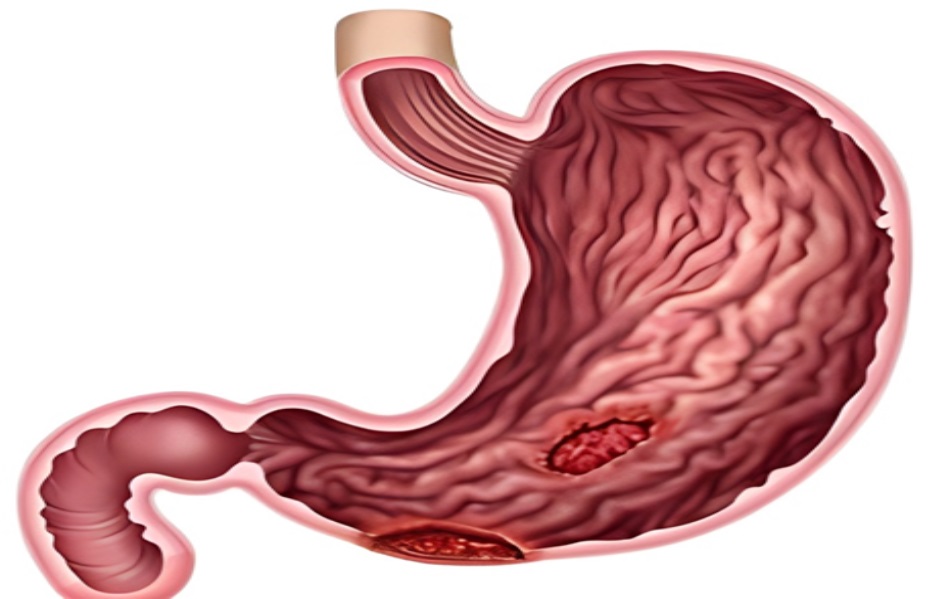A stomach ulcer, also known as gastric ulcer, is a common but often misunderstood medical condition. These painful sores that develop on the lining of the stomach can cause discomfort and, if left untreated, lead to severe complications. Here, we will be taking a look at the causes, signs, peptic ulcer symptoms, and the treatment options that are available for the same.
Agonizing stomach ulcer symptoms bothering you, or your loved ones, for quite some time now? Visit a top hospital in Lucknow today to get the most effective remedies there are.
What Are Stomach Ulcers?
Stomach ulcers, or peptic ulcers, are open sores that develop on the inner lining of the stomach, the upper part of the small intestine (duodenum), or the oesophagus. These ulcers can vary in size and severity and are characterized by the erosion of the protective mucus layer that lines the stomach and duodenum. When this protective layer is compromised, stomach acid can damage the sensitive tissues underneath, leading to the formation of ulcers.
What causes stomach ulcers in humans?
Several factors contribute to the onset of peptic ulcer symptoms in humans. It’s essential to understand these causes to prevent and manage stomach ulcer treatment accordingly.
Helicobacter Pylori Infection: When it comes to what causes stomach ulcers, Helicobacter pylori (H. pylori) turns out to be at the top of the list. This bacterium weakens the protective mucus layer in the stomach, allowing stomach acid to cause damage to the underlying tissue.
Nonsteroidal Anti-Inflammatory Drugs (NSAIDs): Regular use of NSAIDs like aspirin, ibuprofen, or naproxen can increase the risk of stomach ulcers. These medications can irritate the stomach lining and lead to the formation of ulcers, thereby giving rise to peptic ulcer symptoms.
Smoking and Alcohol Consumption: Both smoking and excessive alcohol consumption are known risk factors for stomach ulcers. These habits can weaken the stomach’s ability to protect itself from the harmful effects of gastric acid.
Stress: While stress alone does not directly cause ulcers, it can exacerbate peptic ulcer symptoms and slow the healing process. Chronic stress can lead to poor lifestyle choices, such as overeating or excessive use of NSAIDs, which contribute to ulcer formation.
Signs and Symptoms of Stomach Ulcers
A stomach ulcer can manifest in various ways, and their symptoms may be subtle or severe. Recognising these signs is crucial for early diagnosis and timely stomach ulcer treatment.
Burning Sensation: The most common symptom of a stomach ulcer is a burning or gnawing pain in the upper abdomen, often between the breastbone and the navel.
Nausea and Vomiting: Some individuals with stomach ulcers may experience frequent nausea and, in severe cases, vomiting, which can contain blood or appear like coffee grounds.
Heartburn: Ulcers can cause persistent heartburn, a burning sensation in the chest, which may be mistaken for acid reflux. Knowing what causes stomach ulcers is essential to diagnosing these symptoms in an effective manner.
Unexplained Weight Loss: Significant and unexplained weight loss may be a sign of a severe stomach ulcer, as it can affect your ability to eat in a normal manner.
Dark or Bloody Stools: Stomach ulcers can lead to gastrointestinal bleeding, which can result in dark, tarry stools or stools that appear bloody.
Loss of Appetite: Many individuals with ulcers may experience a decreased appetite or early feelings of fullness, even when they haven’t eaten much.
Fatigue: Chronic blood loss from an ulcer can lead to anaemia, causing fatigue and weakness. Stomach ulcer treatment must take these into consideration.
Diagnosing Stomach Ulcers
If you suspect you have a stomach ulcer or experience any of the symptoms mentioned above, it’s crucial to seek medical attention promptly. Your healthcare provider will perform various tests before starting with the stomach ulcer treatment process:
Endoscopy: A thin, flexible tube with a camera is inserted through the mouth to visualize the stomach and duodenum. This allows the doctor to directly inspect the ulcer and take tissue samples for testing.
Barium X-ray: You may be asked to drink a chalky liquid containing barium, which coats the digestive tract. X-rays are then taken to identify the presence of ulcers.
Blood, Stool, and Breath Tests: These tests can detect the presence of H. pylori infection or signs of gastrointestinal bleeding.
Best options for stomach ulcer treatment
The good news is that stomach ulcers can be effectively treated, and in many cases, they can be cured. The choice of treatment depends on the cause of the ulcer, its severity, and the individual’s overall health. Here are the main treatment options:
Antibiotics: If H. pylori infection is identified as the cause of the ulcer, a course of antibiotics is prescribed to eradicate the bacteria. Combining antibiotics with acid-suppressing medications enhances the chances of successful treatment.
Acid-Suppressing Medications: Proton pump inhibitors (PPIs) and histamine-2 receptor blockers (H2 blockers) are commonly used to reduce stomach acid production. These medications help relieve pain and promote ulcer healing. A hospital in Lucknow would help you effectively and thoroughly with the treatment process.
Cytoprotective Agents: Medications like sucralfate create a protective barrier over the ulcer, shielding it from stomach acid and promoting healing.
Lifestyle Changes: To support the healing process and prevent ulcer recurrence, it’s essential to make certain lifestyle adjustments. These may include quitting smoking, reducing alcohol consumption, and avoiding NSAIDs.
Stress Management: Learning to manage stress through techniques such as relaxation, meditation, or counselling can help in the overall treatment process.
Conclusion
Stomach ulcers are a common condition with potentially severe consequences if left untreated. Recognizing the causes, signs, and peptic ulcer symptoms is the first step in managing and preventing these painful sores. Early diagnosis and proper treatment are essential for a full recovery, and most individuals can expect to resume a healthy, ulcer-free life with the appropriate medical care. Remember to consult with a healthcare professional if you suspect you have a stomach ulcer, as self-diagnosis and self-treatment can be risky.
Looking for the best treatment for stomach ulcers in North India? Book an appointment with a super-speciality hospital in Lucknow today.




